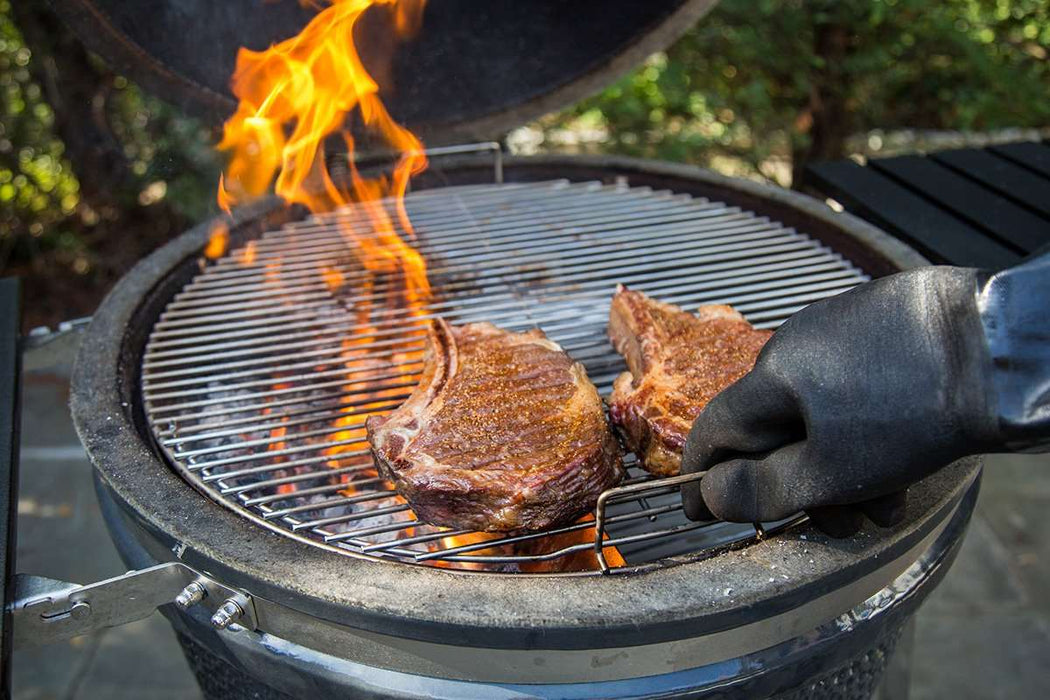How to Install Grill Grates for the Perfect BBQ Experience
Written By James Morgan
Barbecue enthusiasts understand that the foundation of a great grilling session lies in the quality of the grill grates. Knowing how to install grill grates correctly is crucial for achieving that mouthwatering sear and perfect cook on your favorite meats and vegetables. Whether you're upgrading your old grill or setting up a new one, installing grill grates properly can make a world of difference.
In this comprehensive guide, we'll walk you through the essential steps to install grill grates like a pro. We'll also cover some maintenance tips to keep your grill in top shape, ensuring a flawless grilling experience every time.

Understanding the Importance of Proper Installation
Before diving into the installation process, it's important to understand why proper installation is necessary. Grill grates serve as the primary cooking surface, directly impacting the heat distribution and cooking efficiency. Poorly installed grates can lead to uneven cooking, flare-ups, and even damage to your grill.
Moreover, different types of grills require specific installation techniques. For instance, Weber grills might need different grates compared to other brands. Ensuring compatibility and proper fit is essential for optimal performance.
Steps to Install Grill Grates
1. Gather Your Tools
Before you begin, gather the necessary tools and materials. You will typically need a screwdriver, a wire brush, and possibly some cleaning supplies. It's also wise to have your grill's manual on hand in case you need to refer to it during the installation process.
2. Remove Old Grill Grates
If you're replacing old grates, the first step is to remove them. This might require unscrewing or simply lifting them out, depending on your grill model. Once removed, take a moment to clean the grill surface thoroughly to ensure a clean installation area.
3. Position the New Grates
Carefully place the new grill grates into position. Ensure they sit evenly and securely on the grill ledges. For some grills, you might need to secure the grates with screws or other fasteners. Double-check that the grates are level and stable before proceeding.
4. Secure the Grates
If your grill requires it, use a screwdriver to fasten the grill grates in place. Ensure they are tightly secured to prevent any movement during cooking. This step is especially important for grills that experience high usage or exposure to the elements.
Maintenance Tips for Long-Lasting Grates
Once your grates are installed, proper maintenance is key to extending their lifespan and ensuring top performance. Regular cleaning is essential. After each grilling session, remove food debris with a wire brush. Additionally, consider washing the grates with warm water and soap periodically to prevent buildup.
Seasoning your grill grates can also enhance their non-stick properties and protect them from rust. Apply a thin layer of cooking oil to the grates before and after use. For a detailed guide on seasoning, check out this resource.
For those who have cast iron grates, additional care is required. Refer to cleaning tips specifically designed for cast iron to maintain their durability.
Troubleshooting Common Installation Issues
Even with careful installation, issues may arise. If you notice uneven heating, check that the grates are level and properly secured. If the grates are not fitting correctly, ensure they are compatible with your grill model. For older grills, finding the right grates can be challenging. This guide can help you find suitable replacements.
If you encounter rust or damage, consider a DIY replacement to restore your grilling surface. Regular inspections and prompt repairs can prevent small issues from becoming major problems.
Conclusion
Installing grill grates might seem like a simple task, but doing it right ensures you get the best cooking results and prolongs the life of your grill. By following these steps and maintaining your grates properly, you'll be well on your way to enjoying countless delicious BBQs.

FAQ
1. How often should I clean my grill grates?
It's best to clean your grill grates after every use to prevent food buildup and maintain their condition.
2. Can I use any type of oil to season my grill grates?
While most cooking oils can be used, it's best to choose oils with a high smoke point, like vegetable or canola oil, for seasoning grill grates.
3. What should I do if my grill grates are rusting?
If you notice rust, clean the grates thoroughly and apply a coat of oil to prevent further rusting. For severe rust, consider replacing the grates.



